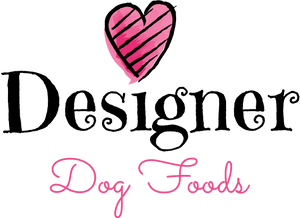Can Dogs Eat Mouldy Food?
As we all become more eco-conscious, you might decide that composting is a good idea - and it is. However, if you have dogs, you need to take caution when disposing of old/mouldy food.
Mould produces tremorgenic mycotoxins that will cause severe side effects. Eating even a small amount will cause serious health problems. In compost, there are at least 19 known moulds that are dangerous to dogs.

Symptoms:
- Abdominal Pain
- Ataxia
- Death
- Diarrhoea
- Gastrointestinal problems
- Seizures
- Vomiting
Several types of nut, including walnut and peanuts, are just as hazardous. Other mouldy food includes dairy products, mouldy grains and pasta.
Therefore, even if you haven't got a compost pile, you need to be careful when disposing of food waste.
With quick treatment, most dogs recover. However, because these toxins can be life-threatening, even if no visible symptoms develop, getting your vet's opinion is still worthwhile. It's better to be safe than sorry.

Top Tips:
- Compost is basically decaying matter, which, for a dog, looks like food. As various moulds start to grow, this heap of leftovers becomes extremely toxic for dogs.
- Be aware of how much access your dog has to your bins or other waste. If symptoms start to arise, take them to your vets immediately.

Treatment Plan
If you suspect they've eaten something mouldy, watch your dog for any negative signs. If symptoms start to develop, seek medical attention immediately. Your dog might begin vomiting to empty their stomach contents, hopefully removing most of the toxins.
When you're at your vet's, they will do a physical examination, a biochemistry profile and a complete blood count. If your dog is vomiting profusely or has diarrhoea, they might use some of it to work out what toxin is poisoning your dog.
Treatments might include:
Emesis - Don't do this at home; however, your vet might induce vomiting. It will quickly remove any pieces of the food/mould that your dog has eaten to prevent it from going into your dog's system.
Activated Charcoal - Your vet will give this to stop your dog from absorbing any more of the toxins.
Stomach pump - In some cases, your vet might use a saline solution to flush the toxins out of your dog's body.
IV Fluids - To aid hydration and to speed up the flushing process, your vet might give fluids.
Medications - If your dog has tremors or seizures, your vet might administer muscle relaxants or anti-seizure drugs.
The key to treating mycotoxin poisoning in dogs is prevention. Since there is no cure, action needs to be taken straight away to avoid further problems or pain.





